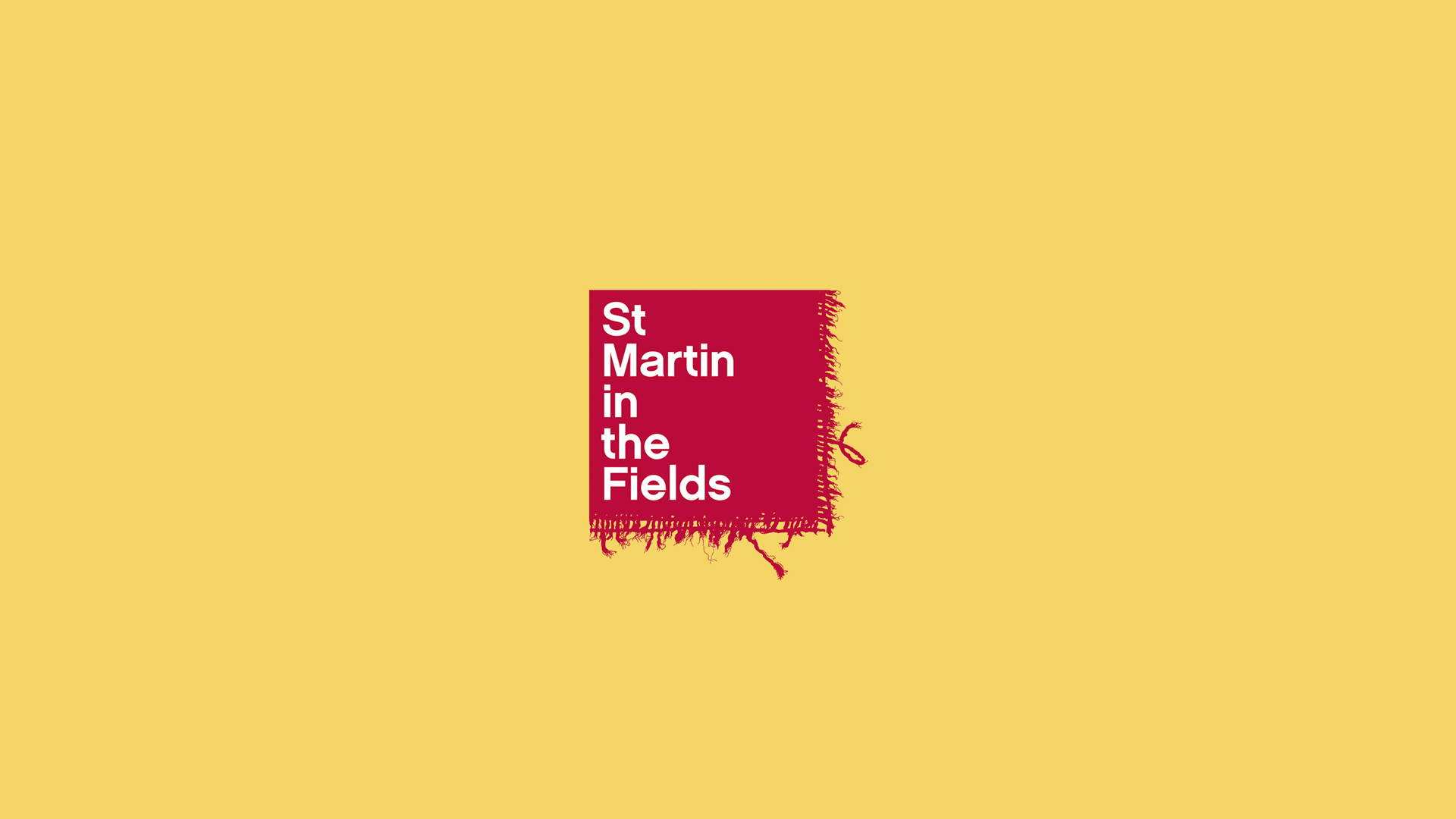A sermon preached at St Martin-in-the-Fields on 21 May 2025, by Jolley Gosnold
Reading for address: Luke 22.47-53
There are times in our lives when peace is disrupted.
When the safety of what has been is usurped
by the pain of what is now.
The person you called a friend has turned against you.
You’re isolated and alone.
You’ve been treated unfairly at work, it’s an injustice,
but there’s no one to turn to, you feel abandoned.
The love of your relationship is shattered
by the heartbreak of infidelity. You’re angry. Hurt. Afraid.
There are times where peace is disrupted so violently
that human beings are stripped of their dignity, of their humanity
and are systematically disregarded, oppressed, imprisoned and murdered.
Look around our world.
Is this not a time when darkness reigns?
Last week, the newly elected Pope Leo held an audience with US Vice President JD Vance.
During that meeting, the Pope gifted his countryman a sculpture with the inscription “Peace is a fragile flower”.
Words I hope he heard.
Words I hope we all hear today.
Peace is beautiful.
But peace is fragile.
If there is one thing we can guarantee will trample down and uproot the flower of peace, it’s more violence.
The world is still seduced by the lie that we can fight fire with fire, but Jesus, in the reading from Luke today, shows us another way.
A way of nonviolent resistance
rooted in courage, love and justice.
Martin Luther King Jr, who was deeply committed to the principles of nonviolence,
who sought to not only talk about it and argue for it,
but actually lived it
in the face of oppression, injustice, and violence that would ultimately lead to his death,
articulates these principles so clearly and vividly
in a way that I truly believe our world needs to re-embrace
if we are going to face, with love, the times when the fragile flower of peace is broken and darkness reigns.
Tonight I will outline those principles and explore how we might be called to respond.
When darkness reigns… we are called to be courageous.
Nonviolence is not a method for those who want to sit on the side-lines.
It does resist.
Anyone committed to nonviolence must be as strongly opposed to the evil against which they protest, as the one who chooses violence to achieve the same result.
Jesus in the garden, disarms his assailants, not with violence but with the courage to step forward and clearly and unambiguously say
‘No more of this.’
This is not a response of weakness.
Of rolling over.
It is a response of active resistance without hatred of one who
steps into the betrayal he now faces,
armed only with love.
To do that, to put yourself at risk like that,
to go into a situation unarmed
with no back-up for the option of violence should it be needed,
that takes courage – and we are called to be courageous
when darkness reigns.
When darkness reigns… we are called to build beloved community.
We do not seek to defeat or humiliate the opponent, but to win their friendship and understanding.
Defeat and humiliate are violent words.
And violence will not end violence.
A nonviolent response envisions reconciliation as the ultimate goal.
Not a new reality where one side has won, the roles have reversed, and the oppressed is now the oppressor.
In Audre Lorde’s words: ‘The master’s tools will never dismantle the master’s house.’
If our means of resistance in the face of violence, are domination, fear and revenge,
we should not be surprised when we find we have become everything we were standing up against in the first place.
Jesus, confronts violence by healing.
Immediately, his attention goes to living a better way.
He lives the future of reconciliation in that moment.
Where all know they are loved,
and all share that love with one another.
We are called to build beloved community when darkness reigns.
When darkness reigns… we defeat the evil of injustice, not people.
When we reframe what we are trying to defeat
we quickly realise
that the oppressors choosing violence
are themselves victims of the same evil that hurts the oppressed.
The tension, the battle, is between
justice and injustice
darkness and light
The only king worthy of the throne darkness occupies
is Jesus the light of the world.
The good news of the gospel is not good news at all
if it is not good news for all.
The power of that gospel is it exposes injustice, without demeaning the people suffocating in its grip.
Jesus challenges those who come for him by focusing on their actions, that they come with swords and clubs
but he does not attack or demonise them
he does not strip them of their dignity.
He refuses to scapegoat or point the finger
He opposes injustice with clarity and compassion,
seeing how quickly they have turned
from friends and siblings in the faith
to weapon-wielding men intent on his destruction.
But he does not greet them with contempt,
he greets them with a sadness
his heart breaking for them
and so lives out the call to defeat evil, but not the people, when darkness reigns.
When darkness reigns… we are called to avoid internal violence of spirit.
At the centre of nonviolence is love.
Love which lives in our hearts.
A love which shapes how we interact.
Nonviolence says I will choose love, instead of hate
I will choose love, even though you choose hate
I will not contribute to the cycles of hate and violence in this world
I want to be part of God’s solution.
I do not want to contribute to God’s grief.
Hate corrodes our souls, makes our lives smaller
more bitter
more isolated.
It does not spring from the reality that we are already loved by God.
It is a lie that we tell ourselves, to make it easier, when loving is hard.
Jesus faces the betrayal of Judas
with a question, that pours out from the pain,
but does not push him away,
does not reject the kiss,
does not allow that action to transform the love he feels for Judas
into hatred.
He is internally disarmed.
Though the world around him was cruel, he did not become cruel himself.
Even in our spirit, in the depths of our hearts, there must be no violence when darkness reigns.
When darkness reigns… we are called to trust in the justice of the universe.
It is the deep faith in the future that gives the nonviolent the strength to accept suffering without retaliation.
A faith that stems from the belief that God is, was, and always will be on the side of justice, love, truth and peace.
And so in God, as we face the uncertainty of the present violence
we trust we have cosmic companionship
that reassures us that death will not have the final word.
The hour when darkness reigns is enough to send Jesus to the cross
but it is not enough to keep him in the grave.
King says: The moral arc of the universe is bent towards justice’
So when darkness reigns in Gaza, in Ukraine, in Sudan, in our own hearts, in our own lives, when our thoughts are violent, when we experience the violence of others
we seek refuge in our loving God
who is with us
and for us.
We approach the cross, aware of the darkness,
but trusting in the redeeming love of God as our companion,
trusting in the justice of the universe when darkness reigns.
Darkness reigns when we admit defeat and believe the lie that war is the only way.
But light shines when we live nonviolently.
Look around at our world.
A nonviolent group called Rabbis for Human Rights recently prayed alongside Imams and Muslims at an interfaith service on the Gaza border crossing, and prayed for peace.
A family from Beit Jala west of Bethlehem, supported by Combatants for Peace, a group of former Israeli and Hamas soldiers, worked together to stubbornly but nonviolently occupy a property at risk of being settled in.
Daoud Nassar leads, Tent of Nations, a community where Arabs and Jews seek to live harmoniously alongside each other in the West Bank, despite attacks from settlers. As the settlers uproot the olive trees from their farms, they nonviolently plant ten more. He says: We refuse to be victims. We refuse to hate. Nonviolence is not weakness. Justice will prevail. We refuse to be enemies.
What incredible courage to say that being an enemy is a choice that, even under the harshest conditions, we can reject.
Look at Issa Amro, who despite being imprisoned, tortured, and raped by Israeli forces and beaten by Hamas operatives for his defiance in the face of brutality, remains committed to nonviolence and puts himself on the line on a daily basis to keep people safe.
This may be a time when darkness reigns
but the light is breaking through
the cool water of love
is slowly putting out the burning fire of hate.
Some will call it idealistic
some will call it ineffective
But it is the way of Christ
It is the way of the cross
And the fruit of that way is life, and love, and reconciliation, and peace
But peace is a fragile flower.
And only physical and spiritual nonviolence
will protect it.

